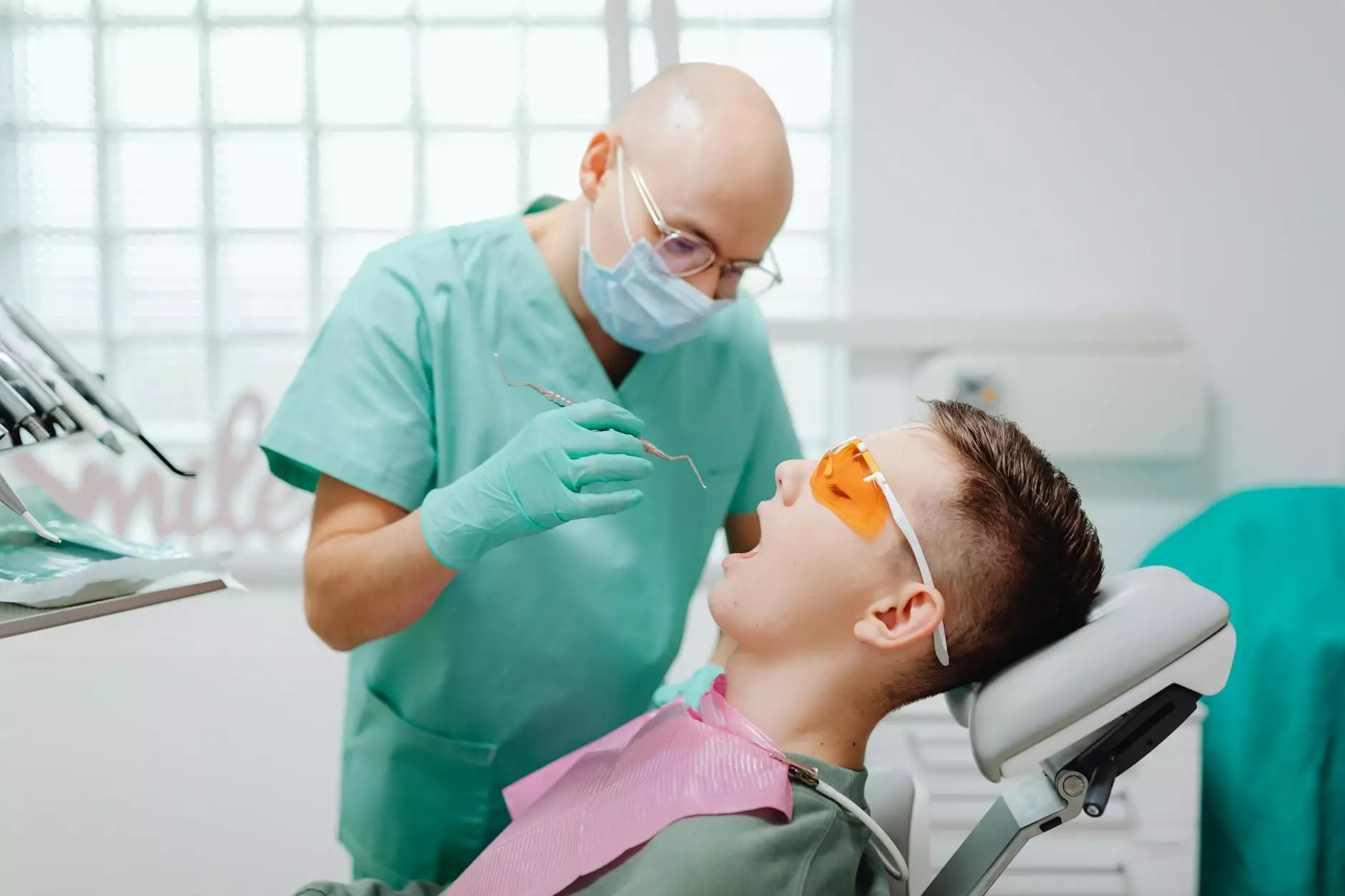What is Dental Bonding?

Welcome to Lawrence Dentistry's comprehensive guide on dental bonding, a popular cosmetic dentistry procedure that can transform your smile and boost your confidence. Our team of expert dentists at Lawrence Dentistry is dedicated to providing high-quality dental services, and we are proud to offer dental bonding as one of our top treatment options.
Understanding Dental Bonding
Dental bonding is a versatile and effective cosmetic dental procedure used to repair damaged, decayed, discolored, or misaligned teeth. This minimally invasive treatment involves applying a tooth-colored resin material directly to the affected tooth or teeth. The resin is carefully shaped and molded to match the natural contours of your teeth, resulting in a seamless and aesthetically pleasing outcome.
At Lawrence Dentistry, we believe that everyone deserves a smile they can be proud of. Dental bonding is an excellent solution for various dental imperfections, providing a quick and cost-effective way to enhance the appearance of your teeth.
The Benefits of Dental Bonding
Dental bonding offers numerous benefits, making it a popular choice among patients seeking cosmetic improvements to their smile. Here are some key advantages of dental bonding:
- Improved Aesthetics: Dental bonding can effectively address tooth discoloration, chips, cracks, and gaps, resulting in a more attractive smile.
- Conservative Treatment: Unlike other dental procedures, such as veneers or crowns, dental bonding requires minimal enamel removal, making it a conservative option.
- Quick and Painless: Dental bonding can often be completed in a single visit, saving you time and minimizing discomfort.
- Durable and Long-Lasting: With proper care, dental bonding can last for several years before requiring any touch-ups or repairs.
- Natural-Looking Results: The tooth-colored resin used in dental bonding blends seamlessly with your natural teeth, ensuring a natural-looking outcome.
The Dental Bonding Process
The dental bonding process typically involves the following steps:
- Consultation: During your initial consultation at Lawrence Dentistry, one of our skilled dentists will examine your teeth, discuss your cosmetic goals, and determine if dental bonding is the right treatment option for you.
- Tooth Preparation: In most cases, minimal tooth preparation is required for dental bonding. Your dentist may lightly etch the surface of the tooth to enhance the bonding process.
- Application of Bonding Material: The tooth-colored resin material will be carefully applied to the tooth and molded to achieve the desired shape and form.
- Bonding and Sculpting: Your dentist will use a specialized light to harden the bonding material. Once cured, the resin will be trimmed, shaped, and polished to blend seamlessly with your natural teeth.
- Final Touches: The bonded tooth will be evaluated for proper fit and bite alignment. Any necessary adjustments will be made to ensure optimal comfort and functionality.
Caring for Bonded Teeth
Proper care and maintenance are essential to ensure the longevity of your bonded teeth. Follow these tips to keep your smile looking its best:
- Practice good oral hygiene by brushing twice a day and flossing daily.
- Avoid biting on hard objects or using your teeth as tools to prevent damage.
- Avoid staining foods and drinks, such as coffee, tea, and red wine.
- Schedule regular dental check-ups to monitor the condition of your bonded teeth and address any concerns.
Achieve the Smile of Your Dreams with Dental Bonding
At Lawrence Dentistry, we are committed to helping you achieve the smile of your dreams. Our skilled team of dentists, advanced technology, and personalized approach make us the perfect choice for all your dental needs. Contact us today to schedule a consultation and discover how dental bonding can transform your smile and boost your confidence.
Disclaimer: The information provided in this article is for educational purposes only and should not be considered as a substitute for professional dental advice. Please consult with a qualified dentist for an accurate diagnosis and appropriate treatment options.










